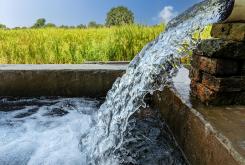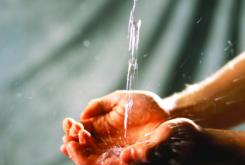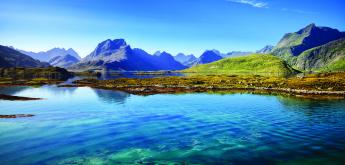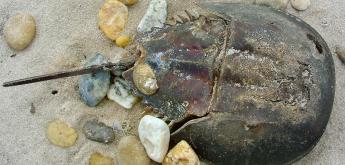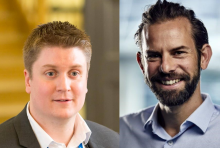Sustainability Update: 2021 GHG Emissions Lowest on Record
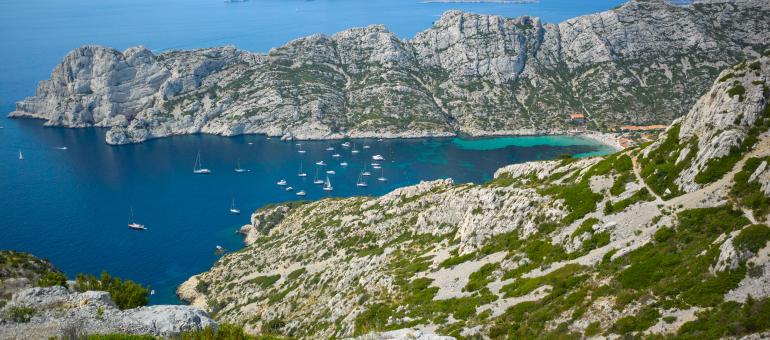
Our teams, equipment, and chemicals are responsible for treating some 11.4 million m³ of water every day. That’s 10,000 employees deploying 10,000 technologies for 50,000 customers. And we’re doing it more sustainably than ever.
We've long held sustainability as a core focus of our business activities, always looking to optimize our production sites to make a difference and set a leading example as a business and individuals.
As part of our commitment to sustainability, we reviewed our own operations. As a result, in 2021, Veolia | Water Tech decreased GHG emissions at its operation sites for four straight years, with 2021 the lowest ever recorded. We also reduced waste quantities and water consumption significantly across the board.
Each year, our work grows more vital. Industrial customers increasingly want to solve complex water challenges and make their operation more resilient while at the same time reducing their carbon footprint. Our municipal customers, meanwhile, are trying to turn their wastewater treatment plants into resource recovery centers.
This progress is only possible with the latest expertise, technology, and chemical solutions that Veolia develops and implements.
Sustainable Development in Action
The Sustainable Development Goals (SDGs) are a collection of 17 interlinked global goals designed to be a "blueprint to achieving a better and more sustainable future for all." Established in 2015 by the United Nations General Assembly, these goals are intended to be achieved by 2030.
As a global organization often working in some of the most remote locales, we look to the SDGs as a blueprint for impact and how our solutions drive global sustainability. Veolia remains committed to solving the world's most pressing water and process challenges, including reducing GHG, expanding access to affordable and clean energy, and ensuring clean water and sanitation. The SDGs help us better understand and replicate our results with progress and impact that's measurable worldwide.
Major Challenges Being Met Every Day
In the last four years, we've already reduced our Scope 1 and 2 GHG emissions by 8.6% for our product operations, including membrane and chemical manufacturing sites. The reduction trends result from a continuous focus on improving energy efficiency and process optimization initiatives in alignment with SDG 13. That focus is demonstrated at our chemicals blending plant in Hoskote, shifting from grid-supplied electricity to on-site solar power generation with a rooftop PV solar installation. The solar power generated there will avoid an estimated 80 tons of CO2 annually and cut the site's GHG emissions by 30%.
Veolia is also expanding access to affordable, clean energy for all in alignment with SDG 7. This year, we will complete a renewable energy asset for Montréal's newest organic waste treatment center, which is expected to divert 60,000 tons of organic waste from local landfills. This project will transform what had once been trash into pipeline-quality renewable natural gas, producing enough to power around 3,600 households. The Veolia Advanced Anaerobic Digestion Technology (ADT) is at the heart of the plant, which transforms the organic waste slurry into methane-rich biogas and other valuable byproducts and bacteria in the absence of oxygen. The plant will recover organic waste produced by nearly 1.5 million residents of the east side and city center, converting it into biomethane. Biogas produced through the ADT system will then be refined into renewable natural gas using the MemGas Membrane biogas upgrading system.
Veolia also ensures clean water and sanitation for all, in alignment with SDG 6. Fast-growing Norfolk is one of the United Kingdom's driest counties. So, when Anglian Water had to ensure a ready water supply for people's daily lives and local industry, it turned to Veolia's ZeeWeed* Ultrafiltration (UF) hollow-fiber membranes, which enabled an additional water intake downstream from the Wensum River's environmentally sensitive areas. As a result, Anglian Water can intake water from the river without damaging the delicate ecosystem near Costessey Pits. This area provides natural storage for water from the Wensum before its treatment and has a rich and diverse ecosystem sensitive to variations in water levels.
Our work at Veolia continues daily in pursuit of the loftiest, most vital goals. Join our mission if you share our passion for sustainability and are excited about solving complex, sustainability challenges. See the latest opportunities on our career page.

